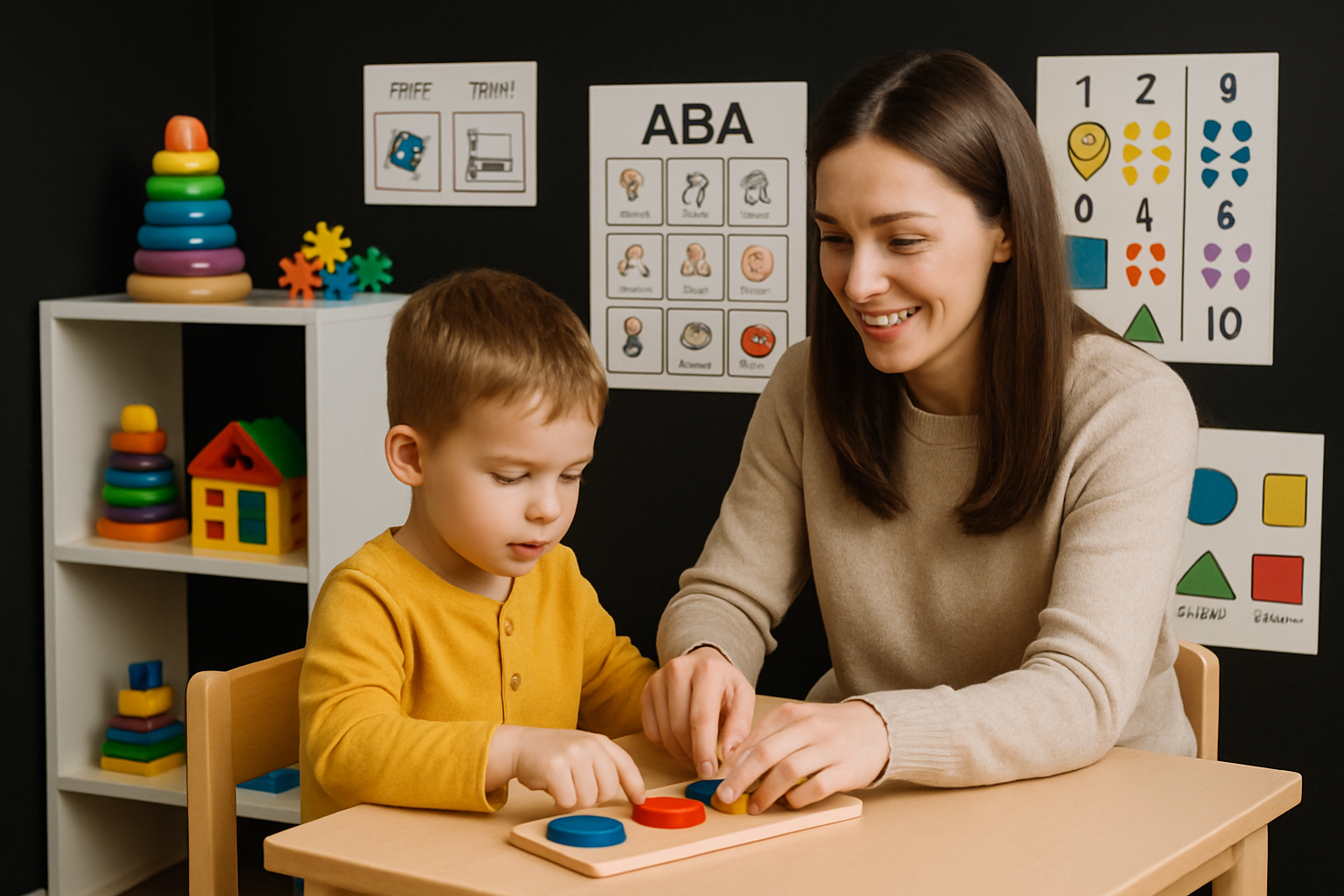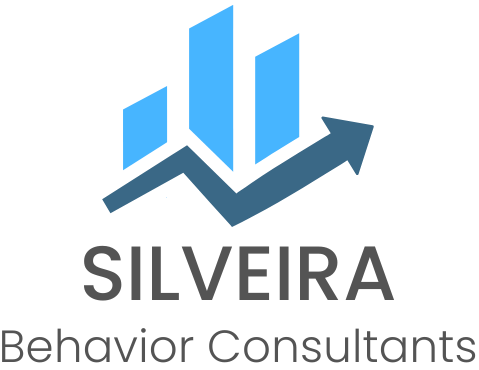ABA specialists are dedicated professionals who empower individuals with autism and developmental disabilities to thrive. Their expertise often marks the difference between ongoing challenges and achieving greater independence.
This guide explores the role of ABA specialists, the impact they make, and practical steps for beginners interested in Applied Behavior Analysis in 2025. Readers will gain insight into ABA fundamentals, the specialized skills these experts bring, how to select the right provider, and examples of real-life success stories.
Understanding ABA: Foundations and Principles
Applied Behavior Analysis (ABA) is a research-based approach designed to teach new skills and reduce difficult behaviors. At its core, ABA examines how behavior functions and how environmental factors influence it. By applying these principles, ABA specialists create strategies that foster meaningful progress for individuals with autism and other developmental challenges.

What Is Applied Behavior Analysis?
Applied Behavior Analysis (ABA) traces its origins back to the 1960s, when pioneers such as Dr. Ivar Lovaas began applying behavioral science to support children with autism. Today, ABA specialists build on decades of research and evolving strategies. At its core, ABA focuses on observing, measuring, and shaping behavior in ways that bring meaningful improvements to individuals receiving services.
For those interested in a deeper exploration of concepts and practical examples, you can check out this comprehensive Basics of Applied Behavior Analysis resource.
Core Principles of ABA
ABA specialists rely on several foundational behavioral principles to guide their work:
- Reinforcement: Strengthening desired behaviors by offering rewards.
- Punishment: Discouraging unwanted behaviors through consequences.
- Shaping: Teaching new skills step by step, reinforcing progress along the way.
- Extinction: Reducing behaviors by removing reinforcement.
These strategies are applied to help individuals develop communication abilities, social skills, self-care routines, and more.
Why ABA Is Evidence-Based
ABA is distinguished by its data-driven approach. Every intervention is carefully monitored, measured, and adjusted based on progress. Research consistently validates ABA as one of the most effective therapies for autism. In fact, the CDC recognizes ABA as the gold standard for autism treatment. Specialists are trained to implement methods supported by peer-reviewed science, ensuring interventions are both reliable and effective.
Who Benefits from ABA?
ABA specialists support a diverse range of individuals, including:
- Children on the autism spectrum
- People with intellectual or developmental disabilities
- Individuals experiencing behavioral challenges at home, school, or within their communities
The overarching goals of ABA specialists include fostering independence, improving daily living skills, and enhancing overall quality of life.
| Goal | Description |
|---|---|
| Skill Acquisition | Teaching new abilities and independence |
| Behavior Reduction | Minimizing challenging or harmful behaviors |
| Independence | Promoting self-reliance in daily life |
Common Misconceptions About ABA
Although Applied Behavior Analysis has a proven track record, several misconceptions persist. One common myth is that ABA is designed only for young children with autism. In reality, ABA specialists work with individuals of all ages, tailoring strategies to meet diverse needs. Another misconception is that ABA is rigid or impersonal. Modern ABA practice is highly personalized, focusing on each person’s strengths, goals, and unique circumstances.
ABA in Practice: Success Rates and Statistics
ABA specialists have played a pivotal role in improving outcomes for families across the country. According to the CDC, more than 70% of children with autism in the United States receive ABA-based therapy (CDC, 2024). Research consistently shows that with ongoing ABA intervention, children often make significant progress in communication, social interaction, and daily living skills.
These results highlight the impact of ABA specialists, whose expertise and dedication help individuals build independence and achieve meaningful success.
The Role of an ABA Specialist: Skills, Responsibilities, and Training
ABA specialists are central to driving positive behavioral change for individuals with autism and other developmental disabilities. Their work combines analytical skills, compassion, and evidence-based strategies to support both individuals and families. These professionals design and implement interventions, monitor progress, and adjust plans to ensure lasting improvements.
Becoming an ABA specialist requires specialized training, a deep understanding of behavioral science, and a commitment to helping people reach their full potential.

Who Are ABA Specialists?
ABA specialists are professionals trained to support individuals in achieving meaningful behavioral change. This group includes Board Certified Behavior Analysts (BCBAs), Registered Behavior Technicians (RBTs), and ABA therapists. While each role carries distinct responsibilities and qualifications, they all share the same mission: helping people build skills and improve quality of life through Applied Behavior Analysis.
Board Certified Behavior Analysts (BCBAs)
BCBAs hold graduate-level degrees and complete extensive training in behavioral science. They are responsible for designing and supervising intervention programs, ensuring that strategies are evidence-based and tailored to each individual’s needs.
Registered Behavior Technicians (RBTs)
RBTs work directly with clients to implement the programs developed by BCBAs. Under supervision, they provide hands-on support, track progress, and reinforce skills in real-world settings.
| Role | Education Required | Main Duties | Supervision Level |
|---|---|---|---|
| BCBA | Master's degree | Assessment, program design, oversight | Supervises RBTs |
| RBT | High school diploma+ | Direct therapy, data collection | Supervised by BCBA |
Distinction ensures strategic leadership and hands-on support
This distinction clarifies how ABA specialists contribute based on their qualifications: some provide strategic leadership through assessment, program design, and supervision, while others deliver hands-on support by implementing interventions directly with clients. Together, these roles ensure that services are both well-planned and effectively executed.
Key responsibilities and daily activities
The daily work of ABA specialists is varied and impactful. They begin with thorough assessments and functional behavior analyses to understand each client’s needs and context. From these insights, they develop individualized treatment plans aligned to specific behavioral goals and measurable outcomes. Throughout implementation, they use evidence-based strategies, maintain detailed data collection to monitor progress, train caregivers, teachers, and support staff, and continually adjust interventions based on ongoing analysis and performance trends.
For example, an ABA specialist might design a Behavior Intervention Plan (BIP) for a child exhibiting aggression. By tracking data and collaborating closely with the family, the specialist refines the approach to reduce challenging behaviors and build replacement skills that support safer, more independent functioning. Every plan remains customized, data-driven, and focused on meaningful progress for the individual.
Essential skills and qualities
Successful ABA specialists blend analytical precision with strong interpersonal skills. Analytical thinking enables them to interpret complex data, identify behavior patterns, and troubleshoot interventions effectively. Equally vital are empathy, patience, and clear communication, which foster trust with clients and families and make training and collaboration more productive. Adaptability and cultural competence help ensure strategies respect family values, linguistic backgrounds, and parenting styles, keeping interventions both effective and culturally sensitive. Teamwork with other professionals—such as educators, therapists, and medical providers—supports integrated care and consistent outcomes. To excel, ABA specialists remain both rigorously data-driven and deeply attuned to each client’s unique experiences.
Training and certification pathways
Becoming an ABA specialist combines formal education, supervised practice, and ongoing professional development. Many start with degrees in psychology, education, or related fields, then complete intensive supervised fieldwork aligned to competency standards. Certification is governed by the Behavior Analyst Certification Board (BACB), which requires specific coursework, accrued supervised hours, and passing a comprehensive exam. Continuing education is essential; professionals attend workshops and conferences to stay current with research and ethical practice. There are now over 60,000 BCBAs worldwide, reflecting strong demand, and the median salary for BCBAs is around $68,000 with a favorable job outlook. For a detailed breakdown of training, certification steps, and professional growth opportunities, see the ABA Therapy Training Guide. ABA specialists are committed to lifelong learning, ensuring their methods remain effective, ethical, and responsive to emerging evidence.
Step-by-step: How to become an ABA specialist in 2025
Becoming part of the next generation of ABA specialists in 2025 is a rewarding path that blends education, hands-on experience, certification, and career exploration. If you’re motivated to make a difference, start with foundational coursework, pursue supervised fieldwork that builds practical skills, prepare for and obtain BACB certification, and maintain momentum through continuing education and mentorship. This clear progression helps you develop the competencies needed to design effective programs, deliver high-quality interventions, and create lasting change for individuals and families.

Step 1: Educational Preparation
The journey to becoming an ABA specialist begins with a strong academic foundation. Most professionals start by earning a bachelor’s degree in psychology, education, or a related discipline. While some programs now offer specialized coursework in applied behavior analysis, it is essential to focus on classes in learning theory, developmental psychology, and research methods.
Here’s a quick comparison of recommended undergraduate courses:
| Major | Key Courses |
|---|---|
| Psychology | Learning, Child Development, Research Design |
| Special Education | Behavioral Interventions, Assessment |
| Behavioral Science | Principles of Behavior, Ethics |
Selecting the right courses early helps future ABA specialists develop analytical and critical thinking skills. Many universities also provide introductory ABA courses at the undergraduate level, giving students a valuable head start.
Step 2: Gaining Practical Experience
Hands-on training is a cornerstone of ABA preparation. Certification pathways typically require supervised fieldwork or practicum hours, often ranging from 1,500 to 2,000 hours for Board Certified Behavior Analyst (BCBA) eligibility. These hours are completed in settings such as clinics, schools, or in-home therapy programs.
Internships with established ABA providers allow aspiring specialists to observe therapy sessions, assist with skill assessments, and collect and analyze client data. This experience not only fulfills certification requirements but also builds confidence in applying behavioral principles in real-world scenarios.
Step 3: Certification and Licensure
Certification marks a key milestone for ABA specialists. The BCBA credential is the most widely recognized, requiring completion of educational prerequisites, supervised experience, and passing a national exam. The BCBA Certification Requirements page outlines current standards, including coursework, ethics training, and documentation.
After certification, some states require additional licensure. For example, Illinois and California have unique licensing laws that set their own practice standards. Staying informed about state-specific requirements is critical before entering the job market. Certification demonstrates to employers and families that an ABA specialist meets rigorous standards and is committed to ethical, evidence-based practice.
Step 4: Building Professional Skills
Ongoing professional development distinguishes exceptional ABA specialists. To maintain certification, practitioners must earn continuing education units (CEUs) through workshops, webinars, and conferences. Membership in organizations such as the Association for Behavior Analysis International (ABAI) or the Association of Professional Behavior Analysts (APBA) provides networking opportunities and access to peer support.
Professional growth also involves learning new technologies, adapting to diverse client needs, and collaborating with other healthcare and educational professionals. Attending annual conferences, joining local study groups, and subscribing to industry journals ensures specialists remain current with best practices and emerging trends.
Step 5: Finding Your First ABA Position
With credentials and experience secured, the final step is entering the workforce. ABA specialists can find opportunities in clinics, schools, hospitals, and in-home therapy agencies. Demand is strong, with the U.S. Bureau of Labor Statistics projecting a 22% growth rate for these roles by 2025.
Applicants should tailor resumes to highlight practical experience, certifications, and relevant skills. Preparing for interviews with scenario-based questions and demonstrating knowledge of ABA principles is key. Building a professional network and seeking mentorship from experienced specialists can also help new professionals find the right career fit.
Choosing the Right ABA Specialist or Provider
Families seeking ABA services benefit from knowing how to evaluate specialists and providers. Credentials are the first step—look for Board Certified Behavior Analysts (BCBAs), Registered Behavior Technicians (RBTs), or licensed therapists. Experience with specific age groups or diagnoses is equally important.
Cultural and linguistic competence should also be considered. Effective specialists adapt interventions to respect family values and communication styles, ensuring therapy is meaningful and personalized. Clear communication and collaboration with caregivers are strong indicators of success.
Evaluating ABA Providers and Programs
When comparing providers, consider the service setting—clinic-based, in-home, or school-based. Each has unique advantages. High-quality programs are flexible, individualized, and data-driven, with family involvement built into planning.
Treatment intensity and progress monitoring are also critical. Ask about session frequency, reporting methods, and caregiver training. Family-centered approaches often lead to stronger outcomes. For guidance, the Choosing ABA Providers resource offers criteria and questions to help families evaluate options.
Questions to Ask Before Starting ABA Services
Before beginning services, families should ask practical questions:
- How often and how long are sessions recommended?
- How will caregivers be involved in therapy?
- How is progress measured and reported?
- What happens if progress stalls?
Open communication ensures ABA specialists remain responsive to family needs and priorities.
Red Flags and Quality Indicators
When evaluating providers, watch for warning signs. Lack of transparency about credentials or unclear qualifications is a major concern. Avoid programs offering generic, one-size-fits-all plans. Effective specialists customize interventions, provide ongoing supervision, and ensure staff receive regular training.
Quality providers demonstrate clear communication, consistent progress reporting, and collaboration with families—hallmarks of professionals who prioritize client growth and well-being.
Silveira Behavior Consultants: Personalized ABA Therapy in Chicago
Silveira Behavior Consultants offers individualized ABA services in Chicago. Led by a Board Certified Behavior Analyst with over 20 years of experience, the team provides clinic-based, in-home, and school consultation. Their approach emphasizes family involvement and data-driven care, ensuring culturally sensitive and effective support.

Real-World Impact: ABA Specialists in Action
ABA specialists deliver tangible improvements in the lives of individuals with autism and developmental disabilities. Their work extends far beyond theory, applying evidence-based strategies to everyday situations that families face. By guiding parents and caregivers through challenges and celebrating milestones—whether large or small—these professionals ensure that progress is both meaningful and sustainable.
From teaching communication skills to building independence in daily routines, ABA specialists make a measurable difference. Their ability to combine scientific principles with compassion allows families to see real transformation, reinforcing the value of ABA in practice.
Case Studies and Success Stories
ABA specialists are central to countless success stories. For example, one young child with autism who struggled to communicate learned to use picture cards through tailored ABA strategies. This reduced frustration and tantrums, and within months, new words and social connections began to emerge.
Another case involved a teenager who developed self-regulation skills with the help of ABA specialists, enabling participation in school clubs and social activities. Families often report reduced stress and stronger relationships after consistent ABA support.
ABA specialists also empower parents by teaching effective strategies for home routines. These real-world examples highlight the lasting impact of their work. To learn more about qualifications and responsibilities, see the What is a BCBA Role page.
Measuring Progress and Outcomes
One of the defining strengths of ABA specialists is their focus on measurable, evidence-based outcomes. Progress is tracked through careful data collection, ensuring interventions are adjusted as needed.
Common tools include:
- ABC (Antecedent-Behavior-Consequence) charts
- Frequency counts and duration tracking
- Skill acquisition graphs
Short-term goals may involve initiating greetings or following instructions, while long-term goals aim for greater independence. According to Autism Speaks, 85% of ABA clients demonstrate significant skill gains within a year, underscoring the effectiveness of ABA specialists.
Challenges and Ethical Considerations
While ABA offers many benefits, specialists face unique challenges. Balancing therapy intensity with quality of life is essential—too many hours can overwhelm clients, while too few may slow progress.
Ethical practice is always a priority. ABA specialists respect cultural, linguistic, and family values, ensuring interventions are meaningful. Informed consent, client dignity, and autonomy are non-negotiable standards. Ongoing consultation with families helps align goals and address concerns with empathy and professionalism.
Innovations and Trends in ABA for 2025
ABA continues to evolve, with specialists embracing new technologies and approaches. Telehealth expands access for families in remote areas, while apps and wearable devices allow real-time tracking of behaviors and progress.
A growing emphasis on neurodiversity means interventions are increasingly individualized, celebrating each client’s strengths. Collaboration with schools, speech therapists, and occupational therapists ensures holistic, wraparound support. By staying at the forefront of research and innovation, ABA specialists set new standards for compassionate, effective care.
Navigating ABA Services: Tips for Families and Beginners
Starting ABA services can feel overwhelming, but the right guidance makes a difference.
Getting Started with ABA
The first step is an initial assessment to identify strengths, needs, and skill-building areas. Providers explain the process in detail. Insurance coverage is another key factor—many plans cover ABA therapy, though requirements vary. Families should confirm specifics such as pre-authorization, session limits, and costs. If insurance isn’t available, ask about funding options like waivers, grants, or payment plans.
Gathering documents such as medical records or prior evaluations helps ABA specialists create accurate, personalized plans.
Collaborating with Your ABA Specialist
Effective collaboration begins with clear, realistic goals. Families should share routines, challenges, and cultural values to ensure interventions are practical. Open communication is vital—ask questions, attend progress meetings, and provide feedback. Caregiver insights are invaluable in shaping successful outcomes.
Maximizing Progress at Home and in the Community
ABA strategies are most effective when integrated into daily life. Prompting communication during meals or using visual schedules for transitions reinforces therapy. Involving siblings and family members ensures consistency. Community practice, such as outings or playdates, helps strengthen social skills.
Advocating for Your Child or Loved One
Advocacy is key when working with ABA specialists and school teams. Families should know their rights regarding special education and therapy access. Attending IEP meetings with data and reports strengthens requests. Building networks with other families and professionals provides support. For legal requirements, consult the State Licensing Requirements for BCBAs.
Resources and Continuing Support
Families have access to national organizations like Autism Speaks and the BACB, which provide toolkits and webinars. Local advocacy groups and online communities offer peer support and practical advice.
Commitment to ongoing learning ensures families make informed decisions and maximize the impact of ABA specialists.
At Silveira Behavior Consultants, families in Chicago find individualized, culturally sensitive ABA services. Led by a Board Certified Behavior Analyst with over 20 years of experience, the team offers clinic-based, in-home, and school consultation. Their approach emphasizes family involvement and data-driven care, tailoring every step to each client’s unique needs. If you’re ready to take the next step, Inquire About Services—they’re here to help.





